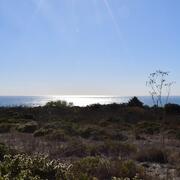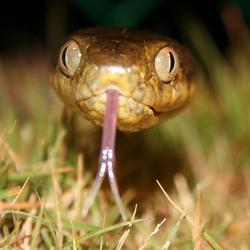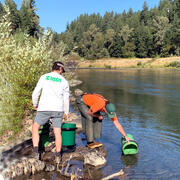Paul Wagner
Paul Wagner is the Acting Associate Director for the Ecosystems Mission Area at the U.S. Geological Survey (USGS). In this role he is responsible for USGS research and monitoring on ecosystems and the human and fish and wildlife communities they support.
Paul oversees major scientific efforts involving fire, drought, national security, species management, land management, wildlife migration corridors, environmental health, ecosystem change, vulnerability assessment, invasive species, and fish and wildlife disease. Results inform federal, state, local and Tribal policy and decision makers such as fish and wildlife managers, energy and minerals developers, land managers, and emergency responders.
Paul came to the USGS after a 10-year career with the U.S. Army Corps of Engineers’ (USACE) Institute for Water Resources (IWR), where he led a division that supported Army Civil Works research, policy, planning, and program analysis. He also served as a science and policy subject matter expert on domestic and international issues related to the USACE Civil Works mission. Prior to joining USACE, Paul was a research scientist where he supported the Regional Vulnerability Assessment Program (ReVA) and the National Center for Environmental Assessment (NCEA). In FY 2018 Paul served as a White Leadership Fellow supporting the President’s Management Agenda on an effort to improve employee performance in underperforming federal work units across the Nation.
In his current position at the U.S. Geological Survey, Paul serves as the Acting Associate Director of the Ecosystems Mission Area (EMA) where he provides leadership to EMA’s Program Coordinators, leads budget and administrative staff, helps lead strategic science planning, and leads EMA’s support to the Department of Defense.
Paul received his undergraduate and master’s degrees in biology from the University of North Texas and his PH.D. in biology from Virginia Tech. Paul resides in Alexandria, VA but has lived coast-to-coast and abroad.








